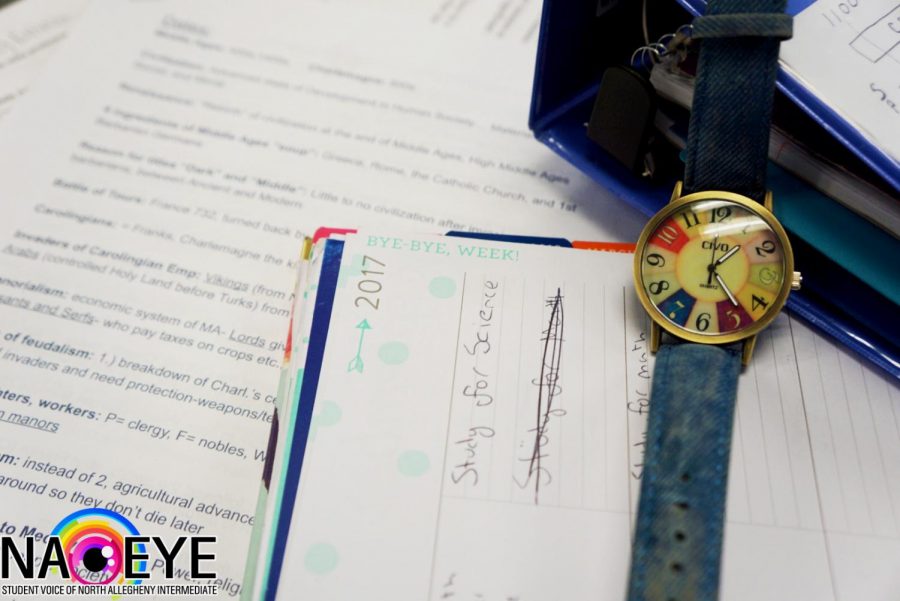4 Tips for Time Management
March 8, 2018
It’s 11:30 at night. NAI students are still trying to complete their history homework, and still have to take a shower and watch Netflix to unwind. If this is a familiar occurrence to students, who are always wishing for more time to finish daily tasks while also having time to relax, then achieving better time management is one minor adjustment to make for major improvements.
Following are some minuscule changes that won’t take too much effort that will enable students to have more time to finish homework, clubs, and other desired activities
1. The first tip, and arguably the most important, is to create a schedule, and stick to it as often as possible. For example, when getting home at three, relax until 4:00, then complete homework, and so on. The best way to do this is to experiment and see what times students can do specific activities in order to finish all of the tasks. If running out of time to do homework and also participate in a sports practice begins to occur, try shortening the times of the unnecessary activities . Once the times that worker found, try to follow it closely as much as possible.
2. Additionally, it is important to put a limit on the time spent on phones. Although this tip sounds like it was written by your mom, it can actually make a tremendous difference on the time that can be used to work with. Many teenagers will continuously get up from doing their homework to check Snapchat or Instagram, only to complain five minutes later that they won’t have enough time to complete it. By only checking phones when one is watching a show or once they have completed a task, there will be less time to waste by spending an hour watching vine compilations on YouTube (even if it brings good memories back).
3. The next tip is to plan ahead when possible. If students know that they will be having an event such as a meeting for a club on a certain day, it is helpful to try to adjust the day in order to still get everything that needs to be completed done. It is also important to prioritize. If there’s absolutely no way to get done both the necessary and optional activities, it is best to cut out the optional choices.
4. Lastly, if necessary, setting reminders is always helpful. For more old school students, try having a dry erase board (or use a post it note) to write down the dates,events, and times of important tasks and activities.However, some students prefer more technological solutions. Alternatively, there are apps that can aid efficient time management too. There are a plethora to choose from, such as Egg Timer or Rescue Time.











